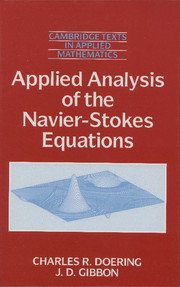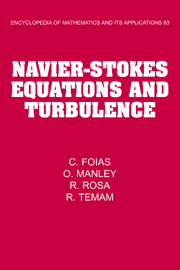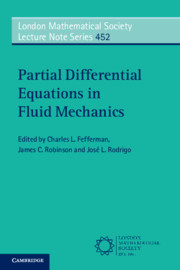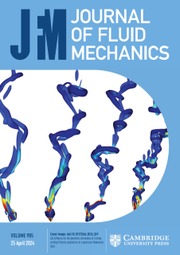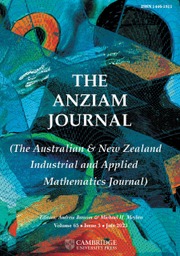Applied Analysis of the Navier-Stokes Equations
The Navier–Stokes equations are a set of nonlinear partial differential equations comprising the fundamental dynamical description of fluid motion. They are applied routinely to problems in engineering, geophysics, astrophysics, and atmospheric science. This book is an introductory physical and mathematical presentation of the Navier–Stokes equations, focusing on unresolved questions of the regularity of solutions in three spatial dimensions, and the relation of these issues to the physical phenomenon of turbulent fluid motion. Intended for graduate students and researchers in applied mathematics and theoretical physics, results and techniques from nonlinear functional analysis are introduced as needed with an eye toward communicating the essential ideas behind the rigorous analyses.
- Mathematically rigorous, yet accessible to physicists, engineers, and applied mathematicians
- Exercises and references included, suitable as textbook for introductory course in mathematical fluid dynamics
- Includes new and recent results, bringing the reader to the forefront of research in the field
Reviews & endorsements
"...belongs in any research library used by either applied mathematicians or fluid dynamicists." E.E. Covert, Applied Mechanics Review
"I recommend it for anyone who wishes to look deeper into the nature of flow problems." Ctirad Matyska, Pure Applied Geophysics
Product details
April 1995Paperback
9780521445689
232 pages
227 × 151 × 20 mm
0.382kg
23 b/w illus. 50 exercises
Available
Table of Contents
- 1. The equations of motion
- 2. Dimensionless parameters and stability
- 3. Turbulence
- 4. Degrees of freedom, dynamical systems and attractors
- 5. On the existence, uniqueness and regularity of solutions
- 6. Ladder results for the Navier–Stokes equations
- 7. Regularity and length scales for the 2-d and 3-d Navier–Stokes equations
- 8. Exponential decay of the Fourier power spectrum
- 9. The attractor dimension for the Navier–Stokes equations
- 10. Energy dissipation rate estimates for boundary-driven flows.

